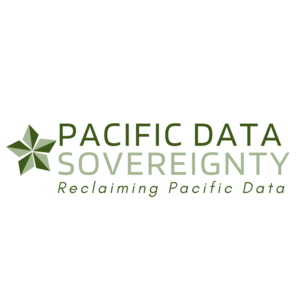Pacific Data Sovereignty Conference Abstracts
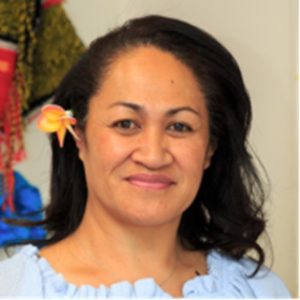
Associate Professor Tamasailau Suaalii-Sauni
The University of Auckland
Understanding ‘over-representation’ in New Zealand Pacific Data and their sovereignty implications.
This paper explores three interpretations of ‘over-representation’ raised by Claire Spivakovsky in her book on racialised correctional governance (2013, Routledge). It examines their potential to provide a more pointed and nuanced analysis of Pasifika data sovereignty claims about Pasifika representation, over-representation or under-representation.
The first interpretation centres on assumptions of the relationship between proportional representation and equity. The second on claims about biological or genetic dispositions. And, third on the continuing effects of colonialism on Pasifika sovereignty and counting methodologies. The paper argues that Pasifika Indigenous data sovereignty debates have thus far neglected to engage in a robust discussion on these three lines of argument and suggests that it is time to do so.
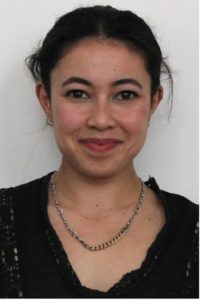
Jess Lagaluga Hutchings
The University of Auckland
Achieving equitable health outcomes for Pacific people living with cardiovascular disease in Aotearoa New Zealand: exploring the contribution of pharmacists.
Cardiovascular disease (CVD) is one of the leading causes of death in Aotearoa and Pacific people currently experience inequitable health outcomes with heart disease being reported as the “leading cause of difference in life expectancy between Pacific and non-Māori non-Pacific”. Contributors to this difference are barriers to access and barriers in the appropriate management of CVD.
Healthcare providers have an influence on the accessibility of health services, and we know that pharmacists play a crucial role in supporting people in managing their health, often being regarded as one of the most accessible primary healthcare providers. Community pharmacists are an underutilised and often overlooked resource and, COVID has changed this position to a certain extent through the COVID vaccination programme.
Approach: This exploratory qualitative study will use the methodological framework of Interpretive Description (ID) underpinned, anchored, and guided by Pacific principles and values. ID is a relatively new inductive framework based on the necessity to generate qualitative knowledge that is useful within clinical practice. It aims to contribute to knowledge that is informed by participants’ accounts and experiences. Pacific values of respect, reciprocity, communal relationships, family, collective responsibility, love, and spirituality will guide all steps in this project in order to recognise, protect and reclaim Pacific people’s worldview. Template analysis will be used, and the Lili model will help guide interpretation.
Findings: This is research is currently in its first year as a PhD project and is in the process of finalising ethics and awaiting approval for data collection. Therefore, as of yet there are no findings.
Conclusion: Pharmacists’ involvement and impact on Pacific people’s cardiovascular disease pathways is an area that has not been well-explored to date. There is little known about Pacific peoples’ perspectives on the role of pharmacists and their experiences of receiving pharmacy services. Now is the time to capitalise on this increased profile and explore how pharmacists are and could contribute to achieving equitable health outcomes for Pacific people living with CVD.
Presenting author (doctoral candidate): Jess Hutchings, School of Pharmacy, The University of Auckland
Main supervisor: Dr Trudi Aspden
Co-supervisors: Dr Karen Brewer and Dr Corina Grey
Dr. Pauliasi Tony Fakahau, Christopher Puli’uvea, Makahokovalu Pailate, Pakilau Manase Lua
Aotearoa Tongan Health Workers Association
Using Pacific data to target the vulnerable communities for Covid-19 vaccination.
Covid-19 infection rates for Pacific peoples between August 2021 and August 2022 were disproportionately higher than the rest of the population. The Aotearoa Tongan Health Workers Association (ATHWA) promoted an ethnic-specific response to increase the Pacific vaccination rates by empowering each Pacific population as a key partner with vaccination agencies. This approach proved successful and the Pacific ethnic vaccination rates started increasing and by December 2021, the Pacific population dose 1 and dose 2 were over 90%.
However, the requirement for booster for adults and vaccinations for children (5-11) presented challenges due to the increase of mis-information and growing anti-vaccine protest. This affected the vulnerable community who became harder to reach due to the influence of misinformation and social problems.
Approach: ATHWA worked with key agencies to identify the datasets with unvaccinated Pacific people using the census and vaccination data. The data was analysed and broken down by ethnicity. The Tongan ethnicity was selected as a pilot to identify areas of South Auckland with the unvaccinated people so that appropriate intervention can be provided.
Findings: The hardest-to-reach community are the most vulnerable and require specific targeting. Knowing where they are is critical for effective information targeting and support. This information can be identified from using census data and vaccination data sets to aid vaccination agencies and ethnic community groups.
Conclusion: Pacific census data needs to be broken down into ethnic data and cross-referenced with vaccination agency datasets to identify areas that need support so they can receive appropriate information to make an informed about the Covid-19 vaccine.
Presenting co-authors: Dr Pauliasi Tony Fakahau, Christopher Puli’uvea, Makahokovalu Pailate, Pakilau Manase Lua.

Alex Poor
AUT | Pinnacle Midlands Health Network
The Data Sovereignty solution: A practical demonstration.
Reclaiming ownership of data.
‘Data Sovereignty’ is rapidly gaining momentum across Aotearoa New Zealand, particularly in the public sector. What is not being articulated as part of that debate are practical steps providing a technical means by which individuals, groups or communities can exert decision-making rights over their personal data.
Understanding the technical layer is critical to understanding the possibilities for data sovereignty. The dominant ‘centralised’ model – even where reciprocity and agency relationships are very positive – plays a direct role in embedding inequality.
In this session I outline my PhD research which utilises new technology, emanating from the ‘Web 3.0’ paradigm, to offer a practical way forward to achieve data sovereignty. I will introduce in user-friendly terms some core concepts essential to understanding distributed data architectures, demonstrate how these can be used to let people be ‘seen’ in data, as well as conduct a live demonstration of the prototype app utilising this technology.
My research process shows that – people do want to be able to own and control how their data is used and understood, and I demonstrate a way this can actually be achieved. I will draw a direct line between this and my own working knowledge of inequity in the health system and show a path forward for further research and debate.
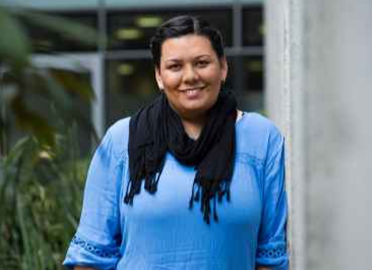
Julie Winter-Smith
The University of Auckland
Who are Pacific peoples in Aotearoa New Zealand? Findings from a Pacific-led analysis of national datasets in the Integrated Data Infrastructure.
Health services responsible for meeting the health needs of Pacific people generally homogenise this group in terms of health needs assessment and health service delivery. This work seeks to provide a more granular view of who Pacific people are, by Pacific-specific ethnicity (including if of multiple ethnicities) and country of birth.
Approach: Using the Statistics New Zealand (NZ) Integrated Data Infrastructure, anonymised individual-level linkage of national administrative health and non-health data identified adult NZ residents alive on 31 March 2013. From this cohort, indigenous Pacific peoples in whom country of birth was available were identified and described by ethnicity (sole/multi-ethnic) using prioritised and total response ethnicity outputs. Ethnicity was defined as the ethnic group/s that people identify with or feel they belong to.
Findings: A total of 117,957 Pacific peoples were identified, of whom 65% were born overseas. Compared to those born overseas, NZ-born Pacific peoples were more likely to identify with more than one ethnicity, although the proportion varied between Pacific-specific ethnic groups (e.g. 82% vs 47% for NZ-born Fijians and Samoans, respectively).
Conclusion: This work exposes diversity within and between Pacific-specific ethnic groups, which is masked by the use of the umbrella “Pacific” label and prioritised ethnicity. In order to better reflect the health needs of Pacific peoples and the extent to which health services are meeting those needs, health services should report analyses by ethnicity using total response output.
Presenting author: Mrs Julie Winter-Smith
Co-Authors: Dr Vanessa Selak, Dr Janine Paynter, Associate Professor Matire Harwood, Dr Corina Grey
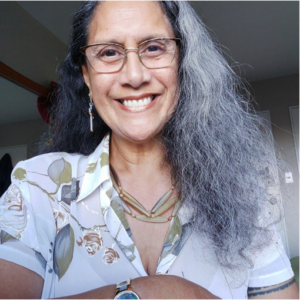
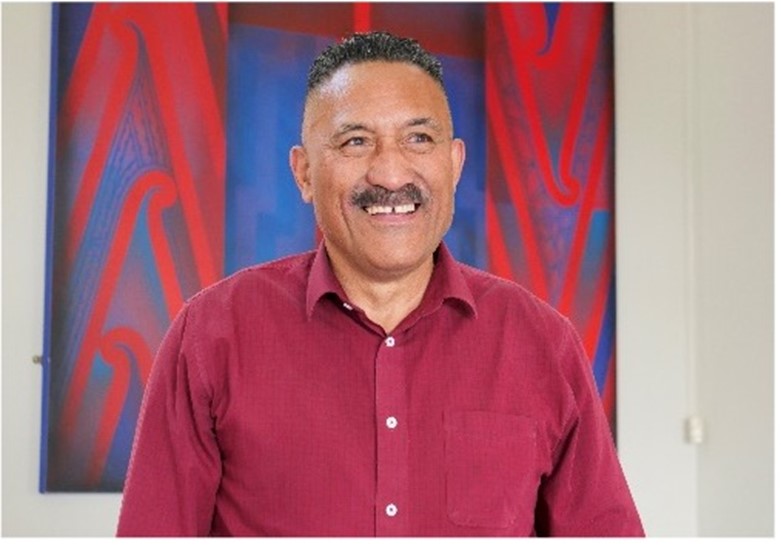
Sarona Iosefa & Manu Sione
Te Whatu Ora
Hira – a widespread effect on Pacific data and information
Hira is a Te Reo Māori word that means ‘to have a significant bearing on future events; a widespread effect.’
Hira will:
- bring together a person’s health data into a virtual electronic health record
- put New Zealanders in control of their health data and allow them to contribute healthcare information
- provide timely access to patient information at point of care
- give visibility of who is working with a consumer
- enable an equal partnership between consumers and providers
- improve the quality and timeliness of analytic data
- lay the foundations for a digitally enabled health system
This presentation will provide updated information on Hira and how Pacific communities have and will be further involved in future developments. The talanoa on Pacific data sovereignty and governance is also very important to our people and families. Hira has already engaged with a number of Pacific leaders and organisations to ensure it is part of the Hira work and development. Your feedback will be valuable in understanding Pacific needs even more.

Sarah McLean-Orsborn
The University of Auckland
Data collection during COVID-19.
The world has been living in a Covid-19 pandemic and the way in which we work, socialise, learn and live has been significantly impacted due to Covid-19. During this time people had to adjust, pivot, and adapt to the ‘new normal’ and the way we do research also needed to change.
This presentation is derived from preliminary results from a Doctoral project: ‘Navigating a global pandemic – Samoan women’s experiences of COVID-19’ – an exploratory study of the sociocultural contributors that impacted upon Samoan women’s positive mental wellbeing through COVID-19.
Approach: A mixed methods approach was utilised to explore the experiences of Samoan women in New Zealand and overseas to gain a deeper understanding of resilience and coping strategies of Samoan women during COVID-19 as well explore Samoan women’s experiences of crises and map their journey to coping.
This study consisted of 321 completed online survey responses and 50 talanoa – these research methods were utilised as the intention of the research was based on the sharing of knowledge rather than extracting it; an empowering protocol when dealing with any type of research within Pacific communities (HRC, 2014).
Results: A common theme that reoccurred throughout the data collection was that Samoan women did not think their experience was worth sharing or talking to others about because they felt others would be, “worse off”. Participants acknowledged during talanoa that they had not even shared with those in their supports and expressed how therapeutic it was.
Conclusion: Despite limitations such as border closures and local COVID-19 restrictions, undertaking safe and meaningful Pacific research is possible. Conducting research during a global pandemic is an example of how research can be an empowering opportunity for participants to share and have their experiences heard and validated.

Dr. Troy Ruhe
University of Otago
Lighted and Connected Pathways: An approach to data sense-making in Pasifika Health Research
‘Lighted and Connected Pathways’ explores the relationship between parental education level and Pasifika children’s health and well-being in Aotearoa. A project lead by Pasifika and partnered with Pasifika. The objective is to highlight potential avenues to support good health and education outcomes for our Pasifika children and families.
Method: The study design is a multi-phased, mixed-methods approach framed by a Pasifika research methodology the ‘Tivaivai Research Framework’. The research process centres a Pasifika worldview ensuring Pasifika values guide all research decisions made. Data from multiple sources are weaved into the overall findings and undergo a process of sensemaking with Pasifika communities. The quantitative analyses highlight the interplay between parental level of education and their Pasifika children’s health, while the qualitative analysis will provide context to these findings. Findings will form the basis of assisting the development or strengthening of effective and meaningful solutions for our Pasifika communities.
Results: Multiple data sources contribute to potential interventions for better health and education outcomes in Pasifika children. The Lighted Pathways phases of the project provides the quantitative analyses; weaving data from 1) Stats NZ’s Integrated Data Infrastructure and 2) Pacific Islands Families Study (PIFS) longitudinal data. The Connected Pathways phase provides a 3) literature review of current education interventions. The project also includes qualitative data (sensemaking) collected by Moana Connect through a sample identified by Pasifika Futures; these groups include 4) families and their experiences of education and 5) potential providers who could influence positive change for education and health outcomes.
Conclusion: ‘Lighted and Connected Pathways’ is an example of research that incorporates Pasifika worldview from conception to dissemination and implementation. It draws on multiple data sources and interpretations for future directions are driven by Pasifika aspirations.
Presenting author: Troy Ruhe
Co-Authors: Jesse Kokaua, Rosalina Richards
Va’a o Tautai – Centre for Pacific Health, Division of Health Sciences, University of Otago
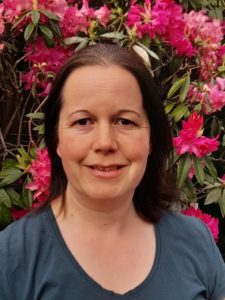
Emma Bentley
Stats NZ
Have your say: Voicing the needs of Pacific communities for the review of the ethnicity standard. Value of data in strengthening Pacific heritage.
High quality data about Pacific people and their communities is important for policy and research. It can be used by and for Pacific people to bring the right programmes and support to a community, and to celebrate strengths and achievements in those communities. To help achieve this often ethnicity data is used from across the government data system.
The Stats NZ statistical standard for ethnicity is being reviewed in anticipation of its wider use across government agencies. You can expect to see changes to the collection and classification of ethnicity data and in the future more consistency in how ethnicity data is collected and used across government agencies.
We will outline our engagement approach for the review – including opportunities for Pacific communities to contribute to the outcomes of the review. The PDSN are represented on the review’s advisory group. We are keen to hear from Pacific researchers and community leaders during the review. Finally, there will be a public consultation where we seek your support in encouraging your communities to participate.
Presenting author and co-author: Emma Bentley and Rukshani Gunasekara
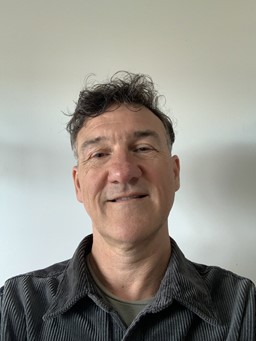
Dr. Gerard Sonder
Pacific Perspectives
Institutional Racism, Pacific Health Disparities and Data
The current structural biases within our health system are impacting health services delivery, perpetuating and increasing health inequities. This presentation will discuss our deep dive into the data for two priority areas for Pacific health: rheumatic fever and maternal care.
Biases and shortcomings in the data that influence equity are described and recommendations for changes to data collection, analyses and measures that support real time action, community engagement and accountabilities for change.
Presenting author and co-author: Dr Gerard Sonder & Dr Debbie Ryan
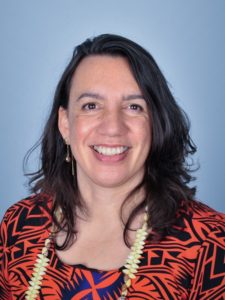
Associate Professor Dr Rosalina Richards
Va’a o Tautai, Division of Health Sciences, University of Otago
Reflections from the Engine Room
Tertiary institutions are one of the many groups that have a role to play in growing Pacific Data Sovereignty and we are grateful for the space created by this conference to strengthen connections between all those interested in various forms of data.
As a sister presentation to ‘Lighted and Connected Pathways’ we humbly offer some additional ‘behind the scenes’ reflections about some of the challenges and opportunities related to data sovereignty that we have observed within our academic environment. By bringing our observations into this space for discussion we hope to support efforts to move beyond traditional disciplinary and institutional boundaries.
There is much to do before we have all of the people, skills and relationships to uphold the promise and responsibility that Pacific Data Sovereignty implies and, from this conference, we look forward to a better understanding of what our role in this collective movement can be.
Presenting author: Rosalina Richards
Co-authors: Troy Ruhe, Jesse Kokaua, Va’a o Tautai – Centre for Pacific Health, Division of Health Sciences, University of Otago
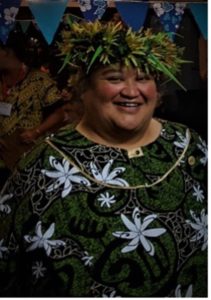
Dr. Jean Mitaera
Whitireia, WelTec, Te Pukenga
Toku reo, toku ia atamira – My language, my sovereignty
The Cartwright Inquiry (1987 – 1988) is still viewed as a defining moment for patient rights in Aotearoa and globally. It led to establishing a system of accountability to patients external to the medical profession and the creation of the role of the Health and Disability Commissioner. Efforts of the last three decades to protect data has primarily focussed on storage, how data is organised and ownership (the business entity or government department who commissioned, holds and or accesses said data). We know that Aotearoa privacy laws do not give people ownership over their personal data – enter Pacific data sovereignty!
As we Moana Pacific support equity for Maori leadership, ways of doing and outcomes we must not replicate the columns of descriptive marginalisation used to render us invisible. Influenced by the current Cook Islands Chronic Kidney Disease research project, the Ministry for Pacific Peoples Pacific Languages Strategy, the recent rebranding of the Pacific Education Centre to the Centre for Pacific Languages and translations of COVID 19 communications this paper argues that as we construct and refine Pacific data sovereignty we must make effort to examine the concept and scope of “Pacific sovereignty” beginning with our languages. That we name and conceptualise Pacific kupu and not organise our data into labels of convenience. This paper discusses four kupu/tuatua that the presenter has argued to be adopted in recent reports: kopu tangata; komakoma; pupu tāto’u; tāonga rima.
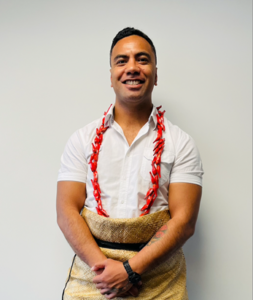
Lilo Oka Sanerivi
Centre for Health, Activity & Rehabilitation Research, School of Physiotherapy, University of Otago
Translating Pacific cultural knowledge into clinical guidance: A PhD study
A culturally safe and competent health workforce has the capability to remove or reduce the barriers that Pacific peoples face in accessing and receiving high-quality health services. This type of workforce will have a greater ability to meet Pacific peoples’ needs and improve health outcomes by translating cultural practices, concepts and diverse world views into high-quality, evidence-informed health services. However, there is no available guidance on the Physiotherapy profession’s practice and standards of care when working with Pacific peoples.
This research aims to explore the cultural knowledge, specifically pertaining to health, of Samoan families and Physiotherapists living in Aotearoa and Samoa with the view of illuminating how understandings of Samoan and Pacific cultural philosophies, ways of being and practices can enhance the rehabilitative role of Physiotherapists when providing health services to Pacific families in Aotearoa.
With the imperative of employing Pasifika research methodologies to seek more contextualised solutions for Pasifika issues, this qualitative research study is employing Talanoa and Kakala research methodologies [1] as well as the Uputaua Therapeutic Approach [2]. The themes distilled through the Kakala process would form the basis of the guideline and/or model of care which will be presented to the peak Physiotherapy professional bodies in Aotearoa via focus group interviews, before refining the final guideline/model for gifting to these organisations.
As this study is currently in progress, preliminary findings from the Aotearoa-based Talanoa have included the importance of the understanding and utilisation of Pacific languages, Fōfō as the indigenous reference for Physiotherapy and Physiotherapy as a hope-giving health service. Upon completion of the Samoa-based Talanoa and the formation of the Kakala, the finding of this study would have implications for health policy development, curriculum development and competency evaluation not only for Physiotherapists, but for all health professionals across Aotearoa.
References
1. Vaioleti, T., Talanoa research methodology: A developing position on pacific research. Waikato Journal of Education, 2006.
2. Seiuli, B.M.S., Uputaua approach: Researching Samoan communities., in Pacific edge: transforming knowledge into innovative practice: research papers from the fourth Health Research Council of New Zealand Pacific Health Research Fono. 2013, Health Research Council: Auckland.
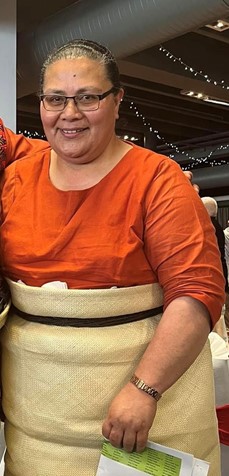
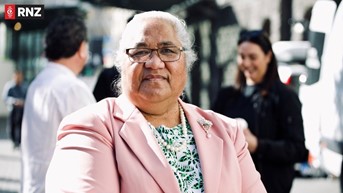
Dr. Ana Koloto & Dr Halahingano Tu’akolo Rohorua
Research and Evaluation Ministry for Pacific Peoples
Kakala Research Framework – Insights and Lessons from the Pacific Economy Research on Unpaid work and Volunteering in Aotearoa.
The Ministry for Pacific Peoples is the Pacific voice in government and a strong Pacific voice relies on Pacific data, insights and evidence to inform its policy advice across government, and services for Pacific communities. In this presentation, we will share our team’s experiences in using the Kakala Research framework to conceptualise, design a mixed methods approach, and undertake qualitative and quantitative research on Pacific peoples contribution to the New Zealand economy through unpaid work and volunteering. The presentation will have a particular emphasis on the methodology issues that we had to navigate in order to address Pacific data equity issues.
We will pay particular attention to the equity issues pertaining to the conceptualisation of the research topic and questions, the sampling frameworks we used to ensure the diverse voices within the Pacific population are represented in the research, in particular, Cook Islands, Niue, Fiji, Tokelau, Tuvalu, Kiribati, Rotuma, Samoa, Tonga, youth and matua. The lessons learnt from this project have important implications for national surveys involving Pacific peoples.
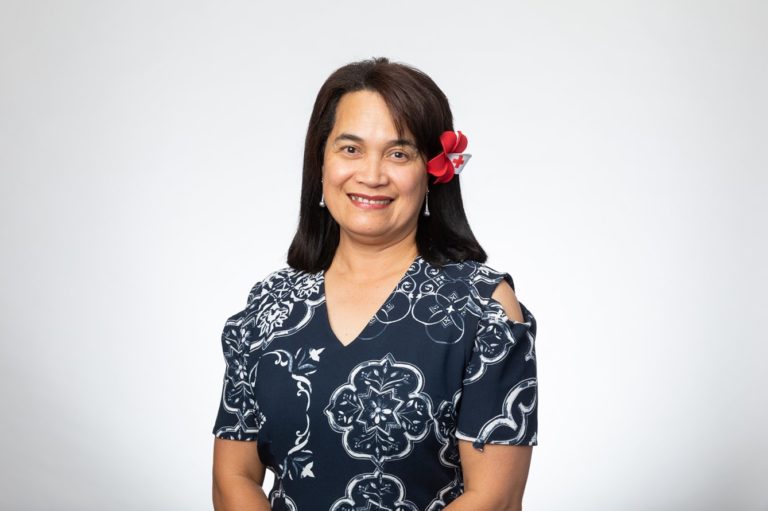
Vivien Pole
Procare
Primary Care data analysis and Pacific health.
Abstract to be posted at later date.
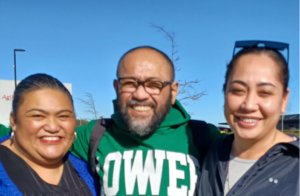
Lisale Falema’a, Veronica Pritchard, Frances Fuamatu
Tertiary Education Commission
Abstract to be posted at later date.
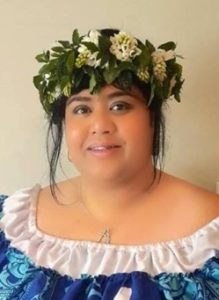
Lemalu Alexa Masina
PHARMAC
A leai se aganu’u, ona pō lea le nu’u – When there is no longer a living culture, darkness descends on the village. A learning journey with Pacific Data Sovereignty.
Lemalu Alexa Masina explores Te Pātaka Whaioranga Pharmac’s ‘learning journey’ with Pacific Data Sovereignty in the development of the Pacific peoples health – Gout data insights report published in April 2022.
Reflecting on her interpretation of the late Aiono Dr. Fanaafi Tagaloa’s thoughts on the need for clarity in Samoan lauga (oratory) Lemalu Alexa looks at how pō (darkness) can descend on how we might engage with Pacific data and insights and how malamalama (enlightenment) might provide clarity, improve access to communication, information, knowledge and health and wellbeing with Pacific voices and aspirations central to our work with Pacific health data.
Using pō to highlight the limitations and challenges and malamalama to describe strengthening partnerships with Pacific peoples and reciprocity, Lemalu Alexa shares how these partnerships and a greater awareness of Pacific leadership and stewardship of Pacific data sovereignty within Te Pātaka Whaioranga influenced various stages of the development of the Pacific peoples health – Gout data insights report.
The presentation focuses on sharing Te Pātaka Whaioranga Pharmac’s ‘learning journey’ with Pacific Data Sovereignty. Copies of the Pacific peoples health – Gout data insights report, the methodology, and key insights will be available for attendees. Authors of the report will also be available to discuss the report during breaks over the course of the conference.
The report looks at medicine access inequities for Pacific peoples in Aotearoa New Zealand, specifically in the prescribing and dispensing of medicines for gout. Key findings outline where inequities lie in access to preventive gout medicines.
Pacific peoples health – Gout data insights. Te Pātaka Whaioranga Pharmac. 2022.
Authors: Jason Arnold, Robyn Harris, Lemalu Alexa Masina, Katherine Graham.
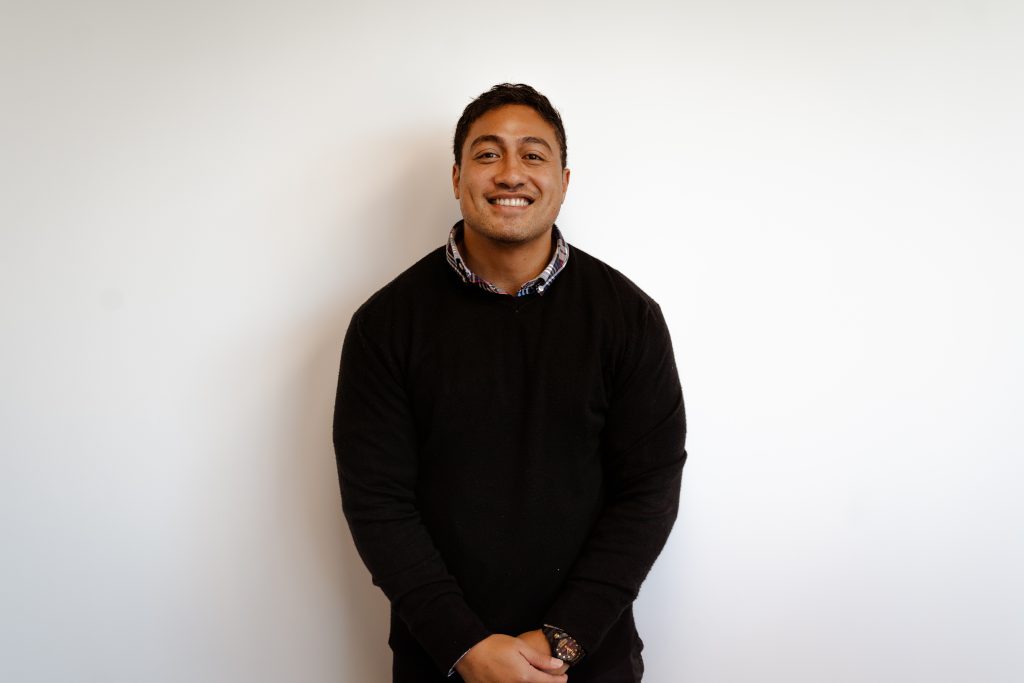
Samuela ‘Ofanoa
Moana Connect
Since September 2021, the Ministry of Health (MoH) and Moana Connect have had a history of data sharing, particularly for vaccination data, when the Omicron outbreak was increasing, and the need for information was vital. In May 2022, Moana Connect signed a memorandum of understanding with the MoH to be supplied information regarding COVID-19 vaccinations and other types of vaccinations (MMR and Flu).
Two key objectives emerged:
- Create a data-sharing process where our Pacific researchers can ask specific questions and seek specific Pacific data.
- To disseminate this Pacific data (i.e. ethnic specific COVID-19 vaccination data and other vaccination data) to the Pacific community in a simple and engaging way. The data-sharing and dissemination of vaccination information from a Pacific perspective is still a work in progress.
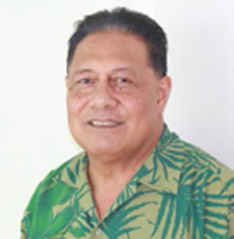
Dr. Malakai ‘Ofanoa
University of Auckland
A co-design research journey to improve the health outcomes for Pasifika in Aotearoa New Zealand- WE CLAIM OWNERSHIP EH?
A co-design partnership exists between the Pacific People’s Health Advisory Group (PPHAG), comprised of community members of different Pacific ethnicities and backgrounds in South Auckland, the Pacific Practice-Based Research Network (PPBRN) representing South Auckland general practices, and University of Auckland Pacific researchers. This presentation describes the genesis of this project leading to the formation of this Pacific Research Collective. Together, PPHAG and PPBRN workshopped key research questions they felt were important to improve the health and wellbeing of South Auckland Pacific communities.
Two research topics were prioritised: improving uptake of urate-lowering therapy for gout patients, and reducing the rheumatic fever burden for South Auckland Pasifika communities. Gout and rheumatic fever both disproportionately affect Pacific people, with the highest rates among all ethnic groups in Aotearoa. Answering these questions was started using postgraduate students. Grants from HRC and MBIE have now been secured.
Both projects follow a three-phase approach:
- Utilising national and Auckland PHO data to explore the burden of disease
- Co-designing and implementing an innovative Pasifika intervention,and;
- Evaluating the implementation of the intervention.
Each project has a post-doc fellow, but the studies are run in tandem, with them working on each other’s projects. There is a strong advisory board representing Māori, Pacific and clinical expertise. Systematic reviews and national stocktakes have determined what has already been tried to address these issues. In a series of talanga (interactive workshops), the Collective (PPHAG, PPBRN and researchers) brainstorm novel Pacific-specific interventions, which are then synthesised, refined and prioritised. Similarly PPHAG and PPBRN will be involved in the implementation and evaluation of the finalised interventions.
Having community groups actively involved enables them to have a sense of ownership and champion the intervention, facilitating its uptake. These studies aim to co-design an approach that will work for Pacific people, enhance health, and foster equity and empower Pacific communities to lead solutions. Based on the co-desing, Pacific peoples are the decision makers – to be involved, provide information, and engage in all aspects. So the question is: who owns the information? It is you and I.
Authors: Dr Malakai Ofanoa[1], Dr Samuela Ofanoa[1], Dr Siobhan Tu’akoi[1], Dr Maryann Heather[1,2], Dr Hinamaha Lutui[3], Rose Lamont[4], Professor Felicity Goodyear-Smith[5].
1. Pacific Health section, School of Population Health, University of Auckland.
2. Etu Pasifika Ltd, Auckland, New Zealand; Pacific Practice-Based Research Network.
3. Alliance Health Plus, Auckland, New Zealand; Pacific Practice-Based Research Network
4. Pacific People’s Health Advisory Group
5. Department of General Practice and Primary Health Care, University of Auckland, New Zealand.
